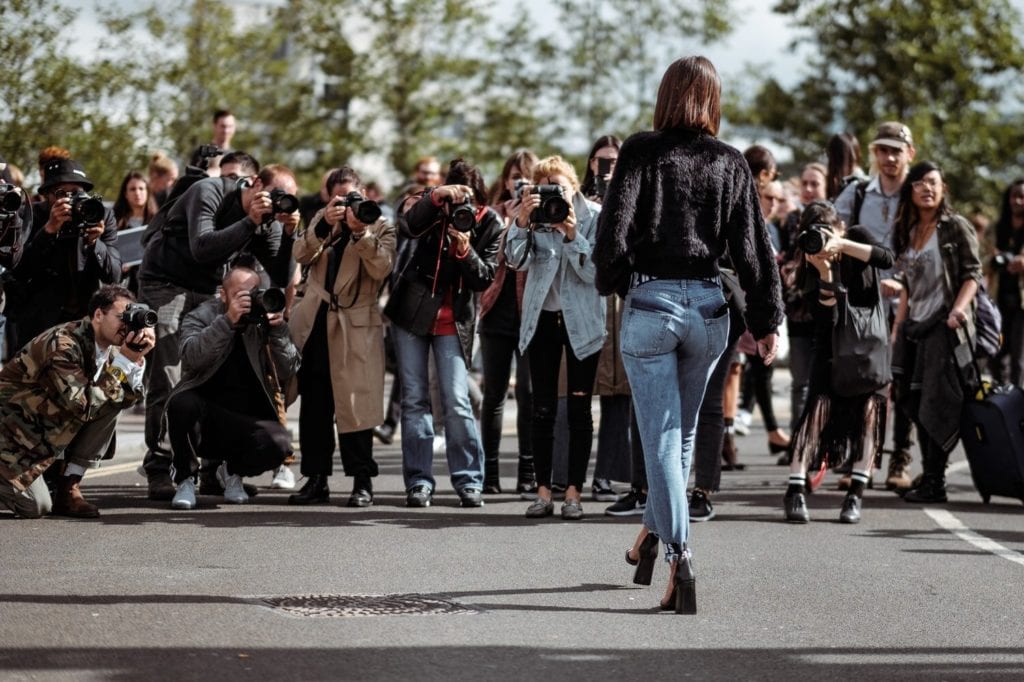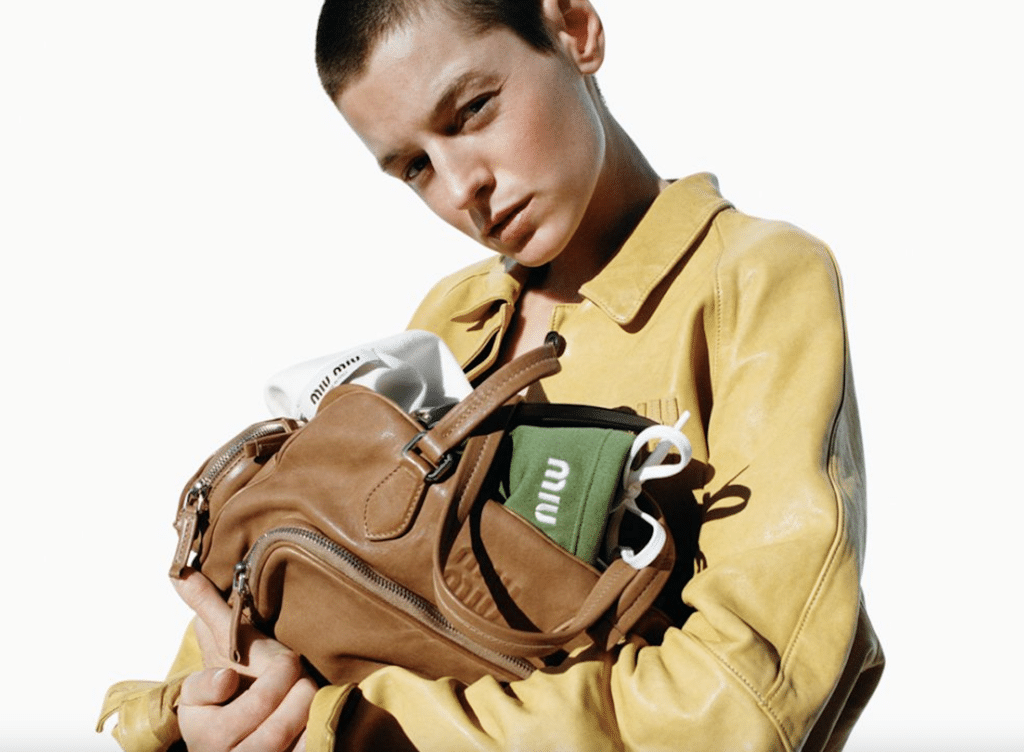Jeremy Scott and Moschino, along with rapper Cardi B, are the latest names on a long list of fashion brands and celebrities to be sued for allegedly running afoul of federal copyright law by posting others’ images to their social media accounts without paying to license the photos or receiving the copyright holder’s authorization to post them. In a lawsuit filed in a California federal court this weekend, Splash News claims that Moschino, Scott, and Cardi B interfered with its photo-licensing business by posting photos taken this spring of Cardi B wearing a flower-covered Moschino coat.
Los Angeles-based Splash New asserts in its newly-filed complaint that despite reaching out to Moschino to notify the fashion brand about the photos and “offering [the brand] a license for internal or social media use,” Moschino and its creative director “copied” the images from The Daily Mail – which was granted a license to published the photos by Splash News – “almost instantaneously” and posted them on their respective social media accounts, while Cardi B posted one of the photos to her Instagram a month later.
The lawsuit is hardly the first of its kind to be filed against a fashion brand over the past couple of years. In fact, Moschino joins the likes of Versace, Marc Jacobs, Off-White’s corporate entity Canary Yellow, and Alexander Wang, as well as smaller companies, such as Are You Am I, Hesperios, and Adeam, among others, all of which have been named in the same type of copyright infringement lawsuits that are readily filling court dockets in New York and California.
The barrage of paparazzi v. brand lawsuits – which has enabled a small handful of lawyers to build entire businesses by helping photographers to fight the unauthorized use of their photos online, all while earning themselves the title of “copyright troll” in some cases due to the sheer volume of such suits – is striking not only because of the frequency of the filings. The rise of these cases seems to speak to a larger, digital-era practice of brands failing to properly license photos or otherwise seek authorization before posting them on their heavily-followed social media accounts.
The kicker here for many photographers is not just that their images are being published to large audiences (Moschino, Scott, and Cardi B respectively have 9 million, 2.2 million, and 53 million followers on Instagram), but that the use is largely commercial in nature, i.e., the photos are being used to promote the brands and/or their particular products for the purpose of inducing sales in much the same way as traditional advertising campaigns.
For instance, as Splash News claims in the lawsuit at hand, the defendants’ social media posts “were intended to, and did in fact, promote a product of Moschino and Scott,” and as the photo agency has argued in similar lawsuits in the past, “Every one of the defendants’ social media posts is fundamentally promoting something to millions of followers,” making the posts “commercial in nature,” and thereby, exempting the defendants from the safeguard of the fair use defense.
Similar claims have been lodged in the past. In the copyright infringement lawsuit filed against Alexander Wang this summer for its allegedly unauthorized reproduction and public display of an image of singer Dua Lipa, counsel for photographer Robert Barbera argued that “Alexander Wang ran the photograph on [its Instagram and Facebook accounts]” for commercial purposes, as demonstrated by the fact that the brand tagged the individual items – its $795 Mini Shirt Dress and $795 Halo Bag – with shoppable links to enable consumers to easily identify and shop the products, and noted that the dress and bag were “now available” for purchase.
Copyright holders’ concerns are certainly bolstered by the changing nature of social media use by consumers and by brands. Social media, or better yet, Instagram, in particular, has essentially replaced traditional media outlets, such as magazines, as the home for fashion viewership and discovery, and as fashion magazine readership falls, and the online sale of luxury goods continues to grow (such sales are expected to top $81 billion by 2025, according to McKinsey), digital alternatives like Instagram are proving to be the most effective home for advertisements.
With more than 1 billion active monthly users, more than half of which fall within the coveted millennial and Gen-Z demographics and many of whom spend an average of 53 minutes on the app per day, Instagram has proven a popular alternative to the traditional advertising model that the fashion industry has long-relied on. The app’s popularity comes as magazine ad spending continues to fall, with the likes of LVMH Möet Hennessy Louis Vuitton, Gucci’s parent company Kering, and Chanel all cutting down on print ads by millions in 2018, alone.
Facebook-owned Instagram seems to be picking up at least some of that, as brands – in fashion and beyond – continue to look en masse to platforms, such as Instagram, as a way to meet modern concerns where they are. The result? The photo-sharing app generated an estimated $8 billion to $9 billion in revenue in 2018, according to Jefferies (as reported by Motley Fool), a figure that the financial series company says could grow to $14 billion this year.
It is against this background that brands are betting big on social media-selling and in many cases, their efforts come in the form of photos of celebrities and influencers modeling their wares. The situation becomes problematic when they lack rights in such imagery, which is not entirely novel territory. Paparazzi photographer protest against fashion brands’ failure to license images before using them as makeshift ad campaigns on their social media pages comes in light of an existing rift in the fashion industry.
A couple of years ago, a group of street style photographers – tired of having their imagery used by brands without ever being compensated for it – formed an “unofficial union” and #NoFreePhotos was born.At the heart of the protest? “Influencers and brands repeatedly using street-style photos from fashion-related events for editorial and commercial purposes without adequately compensating photographers,” as the New York Times’ Elizabeth Paton put it in late September 2017.
Speaking to Times about the motivation behind the movement, celebrated photographer Adam Katz Sinding said, “Our copyright-protected street-style photos are constantly being used without our consent, be it by brands in their news releases, or by influencers who use them in order to fulfill their contractual responsibilities to brands when wearing their clothes and accessories.
“These partnerships [between brands and influencers] drive millions of dollars’ worth of sales and hinge on our work,” he continued, “yet few photographers ever get paid for their service,” noting that being credited when the photos are posted on social media is not enough, legally or otherwise.
To date, none of the #NoFreePhotos qualms have turned into litigation, but with the growing trend of photographers taking action, and given the traction that the Copyright Alternative in Small-Claims Enforcement Act has found in Congress, with the House of Representatives voting 410-6 to pass a bill that (if signed into law) will slap $30,000 fines on Internet users who share a copyright-protected work without authorization, it might just be a matter of time.











